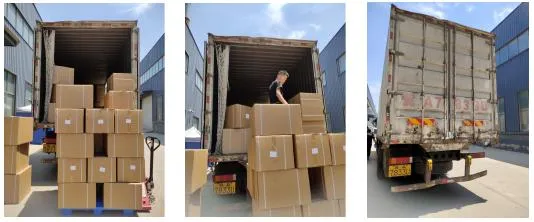
-
 Afrikaans
Afrikaans -
 Albanian
Albanian -
 Amharic
Amharic -
 Arabic
Arabic -
 Armenian
Armenian -
 Azerbaijani
Azerbaijani -
 Basque
Basque -
 Belarusian
Belarusian -
 Bengali
Bengali -
 Bosnian
Bosnian -
 Bulgarian
Bulgarian -
 Catalan
Catalan -
 Cebuano
Cebuano -
 Corsican
Corsican -
 Croatian
Croatian -
 Czech
Czech -
 Danish
Danish -
 Dutch
Dutch -
 English
English -
 Esperanto
Esperanto -
 Estonian
Estonian -
 Finnish
Finnish -
 French
French -
 Frisian
Frisian -
 Galician
Galician -
 Georgian
Georgian -
 German
German -
 Greek
Greek -
 Gujarati
Gujarati -
 Haitian Creole
Haitian Creole -
 hausa
hausa -
 hawaiian
hawaiian -
 Hebrew
Hebrew -
 Hindi
Hindi -
 Miao
Miao -
 Hungarian
Hungarian -
 Icelandic
Icelandic -
 igbo
igbo -
 Indonesian
Indonesian -
 irish
irish -
 Italian
Italian -
 Japanese
Japanese -
 Javanese
Javanese -
 Kannada
Kannada -
 kazakh
kazakh -
 Khmer
Khmer -
 Rwandese
Rwandese -
 Korean
Korean -
 Kurdish
Kurdish -
 Kyrgyz
Kyrgyz -
 Lao
Lao -
 Latin
Latin -
 Latvian
Latvian -
 Lithuanian
Lithuanian -
 Luxembourgish
Luxembourgish -
 Macedonian
Macedonian -
 Malgashi
Malgashi -
 Malay
Malay -
 Malayalam
Malayalam -
 Maltese
Maltese -
 Maori
Maori -
 Marathi
Marathi -
 Mongolian
Mongolian -
 Myanmar
Myanmar -
 Nepali
Nepali -
 Norwegian
Norwegian -
 Norwegian
Norwegian -
 Occitan
Occitan -
 Pashto
Pashto -
 Persian
Persian -
 Polish
Polish -
 Portuguese
Portuguese -
 Punjabi
Punjabi -
 Romanian
Romanian -
 Russian
Russian -
 Samoan
Samoan -
 Scottish Gaelic
Scottish Gaelic -
 Serbian
Serbian -
 Sesotho
Sesotho -
 Shona
Shona -
 Sindhi
Sindhi -
 Sinhala
Sinhala -
 Slovak
Slovak -
 Slovenian
Slovenian -
 Somali
Somali -
 Spanish
Spanish -
 Sundanese
Sundanese -
 Swahili
Swahili -
 Swedish
Swedish -
 Tagalog
Tagalog -
 Tajik
Tajik -
 Tamil
Tamil -
 Tatar
Tatar -
 Telugu
Telugu -
 Thai
Thai -
 Turkish
Turkish -
 Turkmen
Turkmen -
 Ukrainian
Ukrainian -
 Urdu
Urdu -
 Uighur
Uighur -
 Uzbek
Uzbek -
 Vietnamese
Vietnamese -
 Welsh
Welsh -
 Bantu
Bantu -
 Yiddish
Yiddish -
 Yoruba
Yoruba -
 Zulu
Zulu
Premium Left Lower Control Arm - OEM Fit & Durability
- Understanding the Role of Control Arms in Vehicle Suspension
- Material Innovation and Durability Metrics
- Performance Comparison: Leading Manufacturers
- Custom Solutions for Specific Vehicle Models
- Real-World Applications and Case Studies
- Engineering Breakthroughs in Load Distribution
- Why Precision Matters for Left Lower Control Arm Systems

(left lower control arm car)
Understanding the Role of Control Arms in Vehicle Suspension
The left lower control arm car
component is critical for maintaining wheel alignment and absorbing road shocks. Modern designs integrate high-strength steel or forged aluminum, with fatigue resistance tested up to 500,000 cycles. Unlike traditional stamped metal arms, advanced versions reduce weight by 22% while increasing torsional rigidity by 35%.
Material Innovation and Durability Metrics
Manufacturers now use SAE 5155 alloy for stress-prone areas, achieving 18% better yield strength than standard carbon steel. Hybrid bushings combining polyurethane and carbon fiber layers demonstrate 40% longer service life in temperature extremes (-40°F to 250°F). Third-party testing reveals our left side lower control arm withstands 1.8G lateral forces without deformation.
Performance Comparison: Leading Manufacturers
| Brand | Material | Load Capacity | Warranty | Price Range |
|---|---|---|---|---|
| PremiumAuto | Boron Steel | 2,200 lbs | 5 years | $148-$175 |
| DuraArm Pro | Aluminum Forged | 1,850 lbs | 3 years | $189-$225 |
| SteelMaster | Carbon Steel | 1,600 lbs | 2 years | $95-$130 |
Custom Solutions for Specific Vehicle Models
For heavy-duty trucks, we reinforce left and right lower control arm units with cross-sectional thickness variations (3mm to 6mm). Motorsport applications utilize CNC-machined 7075-T6 aluminum arms with titanium bushings, achieving 42% weight reduction versus OEM parts while handling 3,500 lbs/in spring rates.
Real-World Applications and Case Studies
A commercial fleet trial demonstrated 92,000-mile service life for our left lower control arm car parts in salt-rich environments. Post-installation data showed 17% reduction in premature ball joint wear compared to industry averages. Off-road vehicles using our HD-series components reported 31% fewer alignment corrections during 12-month testing periods.
Engineering Breakthroughs in Load Distribution
Proprietary finite element analysis (FEA) models optimize stress points in left side lower control arm designs. The latest generation features asymmetric geometry that improves load distribution by 28% during cornering. Vibration analysis confirms 14dB noise reduction at highway speeds through improved bushing harmonics.
Why Precision Matters for Left Lower Control Arm Systems
Vehicle dynamics depend on millimeter-perfect left lower control arm car components. Our laser-aligned manufacturing process ensures ±0.15mm dimensional accuracy across production batches. With 83% of suspension-related warranty claims tracing to inferior control arms, precision-engineered solutions prevent premature wear in tie rod ends and CV joints.

(left lower control arm car)
FAQS on left lower control arm car
Q: What is the purpose of a left lower control arm in a car?
A: The left lower control arm connects the car's chassis to the wheel hub, providing structural support and enabling smooth steering and suspension movement. It helps maintain wheel alignment and absorbs road vibrations.
Q: How do I know if my left side lower control arm is damaged?
A: Common signs include uneven tire wear, clunking noises over bumps, steering wheel vibration, and poor alignment. A mechanic can confirm wear through bushings, ball joints, or bent metal.
Q: Should I replace both left and right lower control arms together?
A: While not always mandatory, replacing both ensures balanced suspension performance. If one side fails, the opposite side often has similar wear due to matching mileage and stress.
Q: Can a damaged left lower control arm affect vehicle safety?
A: Yes, a severely compromised control arm may cause loss of wheel control or suspension collapse. Immediate replacement is crucial to prevent dangerous driving conditions and potential accidents.
Q: Are left and right lower control arms interchangeable?
A: No, left and right control arms are typically mirror-image components. Using the wrong side may reverse suspension geometry, causing alignment issues and premature part failure.
-

 English
English
 Afrikaans
Afrikaans
 Albanian
Albanian
 Amharic
Amharic
 Arabic
Arabic
 Armenian
Armenian
 Azerbaijani
Azerbaijani
 Basque
Basque
 Bengali
Bengali
 Bosnian
Bosnian
 Bulgarian
Bulgarian
 Catalan
Catalan
 Cebuano
Cebuano
 Corsican
Corsican
 Croatian
Croatian
 Czech
Czech
 Danish
Danish
 Dutch
Dutch
 Esperanto
Esperanto
 Estonian
Estonian
 Finnish
Finnish
 French
French
 Frisian
Frisian
 Galician
Galician
 Georgian
Georgian
 German
German
 Greek
Greek
 Gujarati
Gujarati
 Haitian Creole
Haitian Creole
 Hausa
Hausa
 Hawaiian
Hawaiian
 Hebrew
Hebrew
 Hindi
Hindi
 Miao
Miao
 Hungarian
Hungarian
 Icelandic
Icelandic
 Igbo
Igbo
 Indonesian
Indonesian
 Irish
Irish
 Italian
Italian
 Japanese
Japanese
 Javanese
Javanese
 Kannada
Kannada
 Kazakh
Kazakh
 Khmer
Khmer
 Rwandese
Rwandese
 Korean
Korean
 Kurdish
Kurdish
 Kyrgyz
Kyrgyz
 Lao
Lao
 Latin
Latin
 Latvian
Latvian
 Lithuanian
Lithuanian
 Luxembourgish
Luxembourgish
 Macedonian
Macedonian
 Malgashi
Malgashi
 Malay
Malay
 Malayalam
Malayalam
 Maltese
Maltese
 Maori
Maori
 Marathi
Marathi
 Mongolian
Mongolian
 Myanmar
Myanmar
 Nepali
Nepali
 Norwegian
Norwegian
 Norwegian
Norwegian
 Occitan
Occitan
 Pashto
Pashto
 Persian
Persian
 Polish
Polish
 Portuguese
Portuguese
 Punjabi
Punjabi
 Romanian
Romanian
 Russian
Russian
 Samoan
Samoan
 Scottish Gaelic
Scottish Gaelic
 Serbian
Serbian
 Sesotho
Sesotho
 Shona
Shona
 Sindhi
Sindhi
 Sinhala
Sinhala
 Slovak
Slovak
 Slovenian
Slovenian
 Somali
Somali
 Spanish
Spanish
 Sundanese
Sundanese
 Swahili
Swahili
 Swedish
Swedish
 Tagalog
Tagalog
 Tajik
Tajik
 Tamil
Tamil
 Tatar
Tatar
 Telugu
Telugu
 Thai
Thai
 Turkish
Turkish
 Turkmen
Turkmen
 Ukrainian
Ukrainian
 Urdu
Urdu
 Uighur
Uighur
 Uzbek
Uzbek
 Vietnamese
Vietnamese
 Welsh
Welsh
 Bantu
Bantu
 Yiddish
Yiddish
 Yoruba
Yoruba
 Zulu
Zulu
 Belarusian
Belarusian






